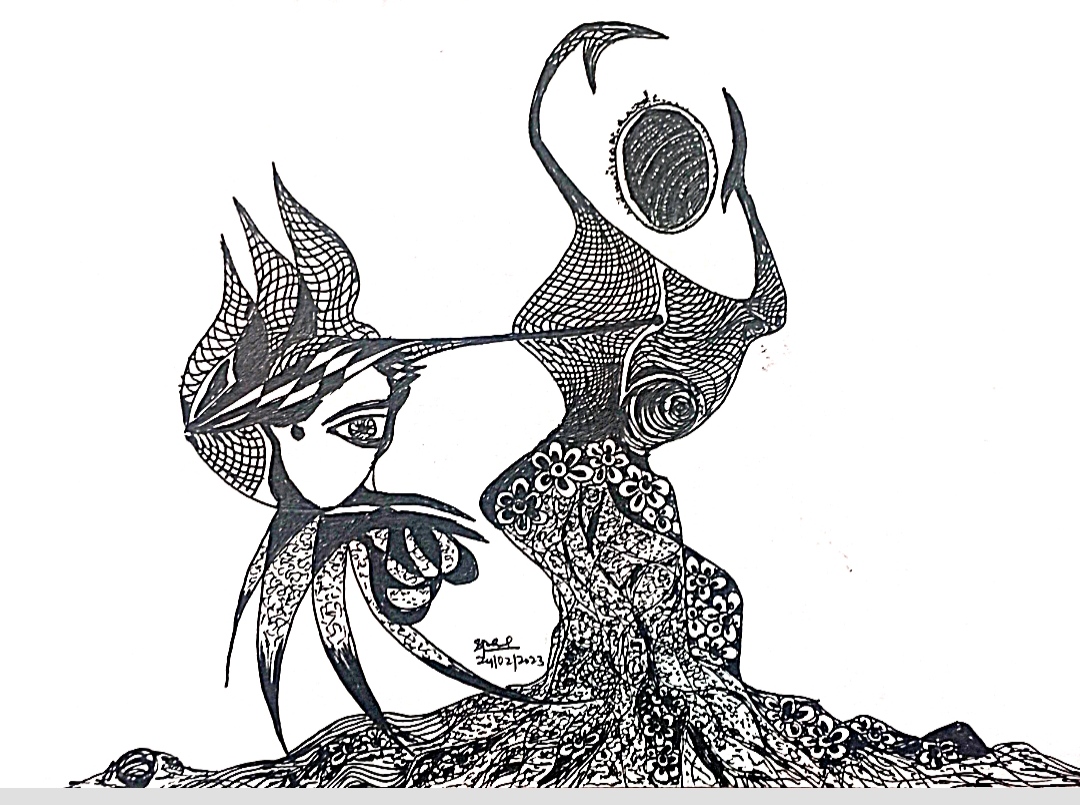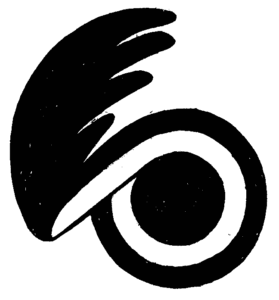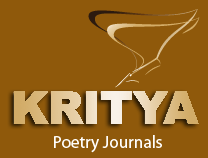
Poetry in Our Time

Bengt Berg

Bengt Berg (born 1946), Torsby, Sweden. He has written more than 40 books, mostly poetry, translated into a lot of languages.
Bengt Berg has participated in many poetry festivals: Medellín (Colombia), Granada (Nicaragua), Struga (Macedonia), Jan Smrek Festival (Slovakia), Kritya (India), Târgul Festival de Poezie (Romania), Poetry on the Road (Germany), Kathak International Poets Summit (Bangladesh), The 5th Qinghai Lake International Poetry Festival and Chengdu International Poetry Festival (China), FIP-LIMA (Peru), 3rd International Poetry Festival in Hanoi, Vietnam, Colcata and Guwahati (India) in 2022
Winter Poems
TO CARRY
To carry is perhaps what life is all about:
the wood that warms through the winter,
the thoughts that make us lift off with
our feet still on the ground, the respect for
what is around us, the grief that also takes
its place – and all this longing. But also
what is not as beautiful: the anger, the hatred,
the jealousy; or the toothache, the shame,
the guilt. We carry everything in the basket
of life: our joy, our worry, our sorrow and our love.
NOW IT IS SNOWING AGAIN
Snowing now so
white and silent and soft,
quieter than soft, white
like a string quartet
doubtful, lingering
over us and everything around
All that was right here
Again the day becomes new
and life lies undone,
a shroud of white
– the simple sadness of Winter
Again and again it snows
the softer silence,
the Thursday silence,
and Bartók’s –
white and soft
EVENING
How many evenings should be counted
to make up a whole night?
Even today the crow spotted me
from his position at the top of the birch tree.
The invisible music behind the
the birch’s light-coloured grid
Turning a thought in the centre
And once more; from the silence
the sap seeps even though
it is the 7th of February
With and against the sun,
even the shadow in the snow
Goes with it across the lake
in the air that cools towards evening
THEN EVERYTHING WAS WHITE
and the creaking under the soles.
As if you were inside a big,
old-fashioned mill with tonnes of oxygen
instead of the smell of flour
No creaking noises from something rotating
but a light that comes
from everywhere
What instrument would be able to compose
this state? Not an organ or a bass tuba,
but perhaps a trembling violin string
that grows stronger and stronger
NOW
Three footsteps in the snow, then
only a pale moonlight
Someone has lost their
memory, can’t remember where
Beyond the snow, a treasure awaits
a treasure – golden
abstraction in the shadows
And a single thought:
Contemporaneity is now
SNOW STORM
Winter twists and turns
like a jacket without sleeves,
there in the blizzard and beyond
the taxi stomping queue:
a princess with snowflake hubris
and the astonishment of the world
THE GRAMMAR OF TENDERNESS
The grammar of tenderness
Writing the smallest letters,
snowflakes out there in the dark,
I listen and hear
the first of the spring winter
cicada – you!
As if the silence
was a tired wall clock,
that feeling
of kickstand diagonals
with a taste of rust, a tenderness
that finds its way
through the grammar
To move forward
in an incomprehensible confidence
as if spring were on its way,
and the maple leaves, already
already glowing in the quiet light of the vowels.
Then the day opens its eye
and we see each other
Edina Barna
Edina Barna, a poet, visual artist and Government of India scholarship holder designer. She has made significant contributions to the creative world. Her work has been featured in numer

ous printed and online publications, including various magazines.
She has been a member of Kritya since 2014. She served more times as the art director of the Kritya Festival, further demonstrating her commitment to the arts. Her poetry collection – Secret Roman
ces – is a trilingual book, was published in India.
Edina seamlessly combines her words and pictures to create visually stunning art that resonates with her audience. As the founder-owner of EdinArts – ‘The Empathetic Creative Design’, Edina has established an art organization that specializes in complex designer projects, media image consultations, and artist and theater group collaborations. Her focus on empathy and creativity has earned her a loyal following of clients who appreciate her unique approach to design.
Who will…
—————-
Who will take care
of my wounds,
when the sun is
going to sleep?
Who will take care
of my dreams,
when the moon is just
hiding behind the peaks?
I am still toward the
peacefully ocean, but
my feet are tiredly seeking
the lifeboat of heartbeat.
They don’t understand
and I am unable to explain…
what happened after
the last goodbye.
_____
under the bridge
———————-
above me… there is the noisy night traffic –
urgent and itching thoughts… are in my mind
the waves also are yelling at me, but
I am just standing there… motionless
the dark water is perfect screen –
on my retinas the past few days are echoing
as a cheap endless tv-series –
I am just a helpless marionette puppet
_____
Morming moment
———————–
The scent of night rain
is slowly writing
the memoir on the old
awakening firewall.
He is remembering every
forgotten feelings of forever.
_____
My sky
——-
My evening sky is always
like an aquarelle painting
with a tiny reality of passing…
______
Who will hold the pen?
————————-
crossword night between
my heart and my mind
they always just fight
because both want to write
_____
Juan C. Tajes,–Uruguay-Nederland

Juan C. Tajes is a poet and multidisciplinary artist. He has lived in Holland since 1971. He writes poetry, plays, and essays. He organizes cultural events and gives lectures on different subjects. His literary work has been published and translated in different countries. He has participated in international literary festivals and has collaborated with literary magazines in the Netherlands’, Argentina, Brazil and Mexico, Bangladesh, Nepal, Russia. He has been a former Professor of interpretation for singers at the WMDC Rotterdam Conservatory and former teacher of Oratory Art at the University of Political Sciences of Paris.
He represents Liceo Poético de Benidorm in Amsterdam, 100.000 Poets for Change Association, World Organization of Writers.
Jacob
The fair
doesn’t wake up from sleep
wonder and concern.
at the end of the stairs
darkness,
at the other end
the shine of reason
angel shadow
falling down
nosedive.
Jacob’s nightmare
in Moria,
as a speaking voice
In dilogue
with the eternal.
where to go
If the prophets
they no longer speak
riddles
no one
crack the keys
no one.
The Ladder
You will go back to being what you were.
When your time will come
no one shall remember your beginning.
All past is invention
that legitimizes an uncertain future.
The angels go up and down the stairs,
Jacob dreams leaning on his stone,
While hearing the promises
From a voice that claims to be from God.
Perched on his column
Simon prophesies profane litanies
For timid numb consciences,
And sheds his excrement
To unsuspecting interns.
Poets for hire contradict,
Corrupt politicians deny.
An eye for an eye, said the blind man,
when they emptied his orbits
And they were served to him
Marinated in a delicious sauce.
He had to eat them without wine and without talking.
But let’s not fool ourselves, the earthly punishments
They are always worse than the spiritual ones,
They leave indelible scars, stinking sores.
The saints were not always innocent,
Neither the blessed, nor the martyrs,
Not virgins, not demigods.
When you will get sick of who you are
And stop aspiring to be something else,
You will no longer think about the butterflies
That they are only a few hours alive,
Nor in the tadpoles
They don’t know that they will be frogs,
Not even in the parrots
Repeaters of foolish words,
Nor in the immortality of the crab.
You cannot be and have been at the same time.
How to talk about time without naming it?
How to name time without living it?
And those angels that go up and down the stairs,
where are they going?.
Alexandria
I searched in memories
not lived
unlikely
Invented
unstable
chimeras of passing
in hours spent
lost in the dark
of truth revealed
dark and offensive
there are no bright epiphanies
but
It’s a lie and deceit
the shadow confirmed
the light does not need to reveal itself
the force of things
is more energetic
that the impetus of the will
I will have that certainty
when Azael knocks on my door
and hand me the apple
for the sweet transit
without return
to Paradise.
Mohammad Hajji Mohamad-Tangier, Morocco
 Mohammad Hajji Mohamad(Tangier, Morocco 1958) is one of the major poets of contemporary poetry in Morocco. He also plays a very important role in the cultural press in Morocco with his chronicles in the Akhbar newspaper Al-Yaoum. He writes book reviews and criticism and has translated several books from French. He has published his poems in almost every cultural supplement in Morocco. He ran a Literature website called Acropole that he himself founded in 2006. He has been a member of the Moroccan Writers’ Union for decades. He has participated in various national and international poetry festivals and has published in many Arab literary magazines.
Mohammad Hajji Mohamad(Tangier, Morocco 1958) is one of the major poets of contemporary poetry in Morocco. He also plays a very important role in the cultural press in Morocco with his chronicles in the Akhbar newspaper Al-Yaoum. He writes book reviews and criticism and has translated several books from French. He has published his poems in almost every cultural supplement in Morocco. He ran a Literature website called Acropole that he himself founded in 2006. He has been a member of the Moroccan Writers’ Union for decades. He has participated in various national and international poetry festivals and has published in many Arab literary magazines.
A trivial morning
Like any morning,
very early,
the alarm chased me
away from nostalgy paradise.
Forced,
I left home
like a busty guest
in a gloomy hotel.
Like any morning,
the idle’s glow shines at my face,
I see a wolf droning of sleep
listlessly walking towards the bathdroom.
Like a village dazed by thousands of sunlights
Yawning a while,
or taking off ghosts’ nightmares from its ribs.
What if I throw to the river its despair waste,
then shelter a café
nearer my jugular vein
like a traveler let down by a bus in a station?
Like any morning,
I wake up on my enemies’ skulls.
My teeth, I clean them from the meat,
then throw bones to the wild birds.
I am not an executioner from antiquity,
or a crow betting on a winning game.
Yet,
I carefully count my ghosts’ cadavers,
came back to my sleeping’s barraks
like a soldier returning from a battlefront.
Like any morning,
I free my chin from its herb legions,
I scold the water tap for its purling noise,
that spoils the universe sleep.
Thus,
whenever my howling wakes up,
I opened the window,
hoping a clean air
sweeping my soul yard
from the remaining thunder bangs.
New enormities
With a stormy head
you habitually wake up
from your sleep’s rubble,
with your smashed ribs of treacherous raids.
Before you throw your sleep’s remnants
to the washing machine.
Before you cast your deception with an ink of fake nails,
together, we pull apart
the clouds’ turbans of a continent,
and lead its tyrannous tribes
till the distant seas.
Socrates•,
My destiny: lead your field’s insomnia
to a cattle of a rotten index fingers.
My dstiny: Teach Awss and Khazraj•
the sun’s rules
and the rhetoric of the Greek skull.
And because,
my cave is full of lasting nightmares,
my shelter is your intimate tavern,
and with a sip,
of a stilted morning coffee,
I will expel all your mood’s clouds.
Oh morning !
where will your enormities throw me? To lesson plans’ fashion
I wish it extirpated,
or to some words
scented with the wasteland customs… ?!
- Socrates : A Greek philosopher
- Awss and Khazraj : 2 famous Muslim tribes
The first night
In the fierce darkness,
in my body,
the early howling wakes up.
Then,
I see a sparkling woman with proud kings.
I see thousands of birds guarding my boredom,
waddling
cheering my dreams
in the lust dome.
Once I turn around,
she faded away like stars crowd,
over there,
in farthest skies.
In the fierce darkness,
wars and songs are a start storm weeping in the castle.
Whilst,
my desires now:
Traveling, wine and a beauty.
On my bedding,
she left her nectar perfume
and responded to the chalk calling.
Crowning all shining dreams
from her nectar warmth.
The longing glittering, warbling
in her fading galaxy.
In my words flow
the yearner I am
getting nothing but
childhood insomnia
and some jugglers’ sacred stray.
How can I flee a love:
devouring my heart
not trucing my wings ?
Now,
celestials surround my forehead, for « Rabab »• :
I draw a longing garden,
a pic-nic blessed by velvet flowers.
A gentle angel she is,
on the chest
I hang her childhood coat,
a mariner, I sail the seas
lurching in the memories’ waves !?
Oh night !
Continent of joy
a wobbling pearl between
the universe thighs.
Leave me far away
from a woman blowing the body parts.
Even,
his howling lust in jungles,
she folds her face features,
then,
she left at once
pulling my heart
and my desired sleeping over.
- Rabab : An Arabic first name for a girl.
Brief bio:
Mohamed Hajji Mohamed (Tangier, Morocco 1958) is one of the major poets of contemporary poetry in Morocco. He also plays a very important role in the cultural press in Morocco with his chronicles in the Akhbar newspaper Al-Yaoum. He writes book reviews and criticism and has translated several books from French. He has published his poems in almost every cultural supplement in Morocco. He ran a Literature website called Acropole that he himself founded in 2006. He has been a member of the Moroccan Writers’ Union for decades. He has participated in various national and international poetry festivals and has published in many Arab literary magazines. Some of his major works are:
- The wolf of the deserts, Editions Anajah Aljadida, Rabat, 1995
- A morning that does not concern anyone: poetry, Infoprint Editions, Fez, 2007
- I… Belonging to the dynasty of the flute, Poetry, Publications of the Moroccan Writers’ Union, Rabat, 2013
- The Prometheus Syndrome, essays on art and literature, Ediciones Agora, Tangier, 2021.

